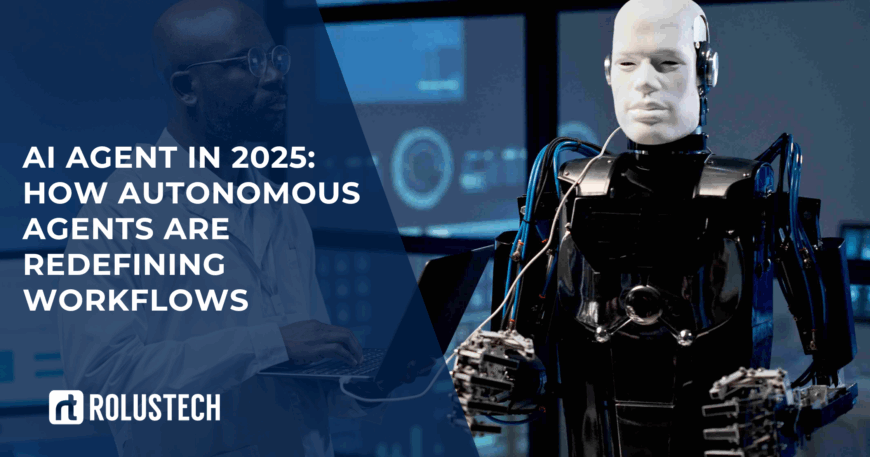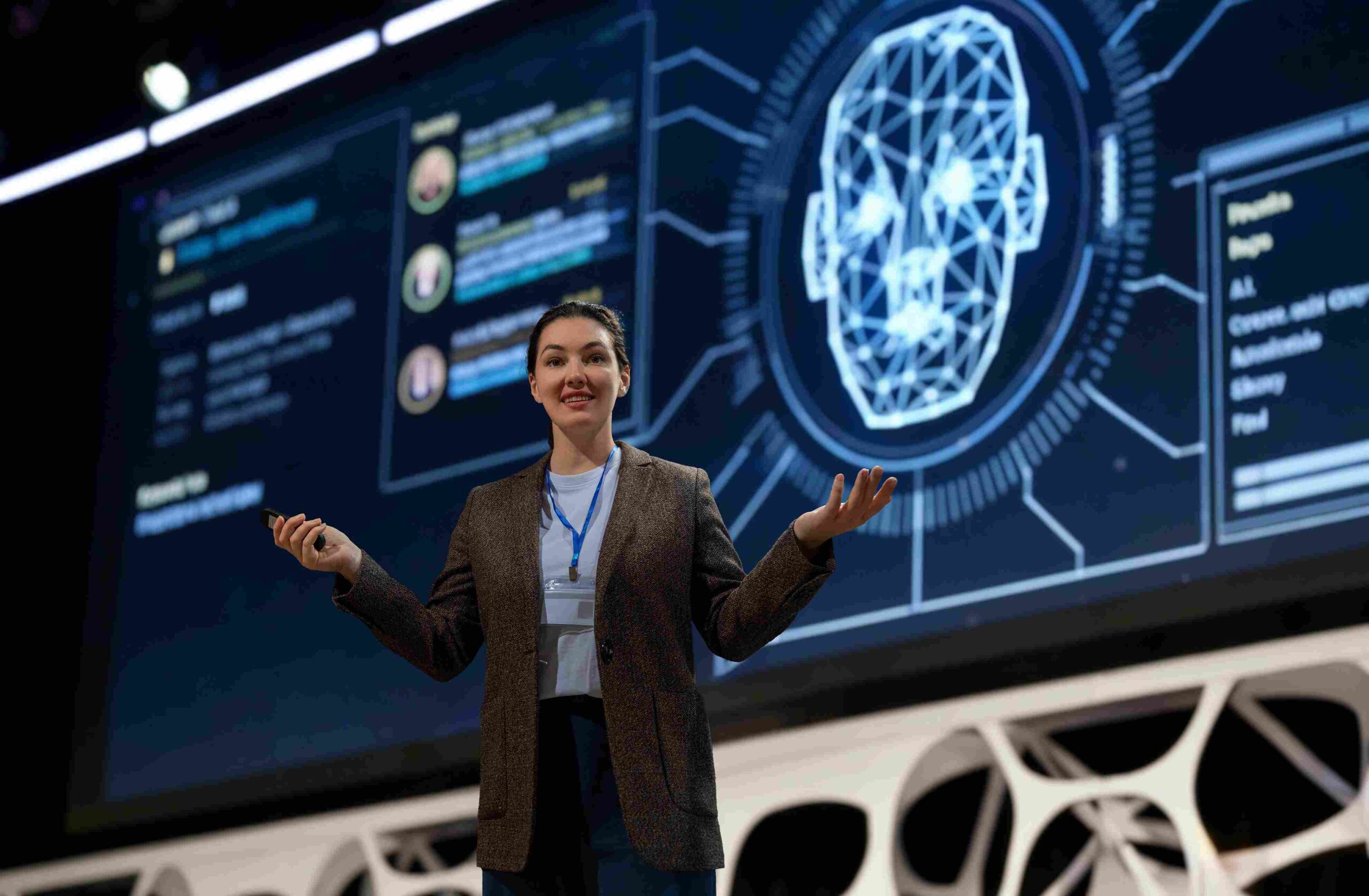The Future of Smarter Workflows
The year 2025 is a defining moment for AI agents. They’ve moved far beyond experimental use.
Today, AI-powered agents handle critical business tasks, manage data, and automate complex workflows. What was once a futuristic idea is now a practical reality. Autonomous AI agents are revolutionizing the way businesses operate.
These tools offer speed, accuracy, and scalability. Companies adopting AI workflow automation are setting new standards for efficiency.
Let’s dive into why AI agent use cases are becoming central to modern business operations.
Why Businesses Can’t Ignore AI Agents Anymore
The simple answer: efficiency. AI agents streamline repetitive tasks that consume time and resources.
Mistakes in manual processes can be costly. AI-powered agents complete tasks with consistent accuracy. Scalability is another driver. Humans can multitask, but autonomous AI agents handle hundreds of tasks simultaneously.
This power enables rapid growth, particularly in industries such as healthcare, finance, and e-commerce.
More importantly, automation frees employees from routine work. With AI workflow automation, they focus on creativity and strategy.
The benefits are clear: better results, reduced costs, and faster operations. Businesses can’t afford to ignore them.
AI Agents Explained: What They Really Do in 2025
So, what exactly is an AI agent? At its core, it’s a digital decision-maker.
Unlike traditional bots, autonomous AI agents don’t just follow commands. They learn, adapt, and improve. They integrate with systems like CRMs, ERPs, and analytics platforms. This makes AI workflow automation seamless.
For instance, a customer service AI agent can analyze past cases and resolve issues faster.
In finance, AI-powered agents detect fraud by spotting unusual transaction patterns in real-time.
Some popular AI agent use cases include HR onboarding, lead qualification, inventory monitoring, and IT helpdesk support.
Wherever there’s repetitive, data-heavy work, autonomous AI agents are stepping in.
What’s New with Autonomous AI Agents in 2025
Several advancements are expected to enhance the capabilities of AI agents in 2025.
First, natural language capabilities have evolved. Teams interact with AI-powered agents using plain English commands.
Second, cross-platform integration is seamless. Autonomous AI agents seamlessly integrate CRMs, ERPs, and communication apps. For example, an AI agent can fetch customer data, update invoices, and send email alerts instantly.
Third, compliance and security features have matured. Companies trust the best AI agent tools with sensitive data.
Fourth, predictive insights are now standard. AI agents forecast outcomes and suggest smarter actions.
Finally, the user experience has improved dramatically. Drag-and-drop builders simplify the design of AI workflow automation.
Together, these innovations make autonomous AI agents indispensable business assets.
How AI Agents Fit into Daily Workflows
Technology adoption depends on usability. The same applies to AI-powered agents.
Modern platforms offer clean, simple dashboards that require minimal training. Employees assign tasks using natural language commands, such as “Send client report every Monday at 9 AM.”
Visual flow designers display step-by-step processes, making AI workflow automation easy to understand.
Mobile-friendly interfaces keep managers connected. Some of the best AI agent tools even support voice-enabled approvals.
This transparency builds trust. Teams see what the AI agent is doing at every step.
By eliminating complexity, businesses remove barriers to adoption. That’s why usage is rising rapidly.
How to Successfully Implement AI Agents in Your Business
Jumping into automation without planning can cause chaos. Here’s how to roll out AI agents effectively.
Step 1: Identify tasks. Start with repetitive, rules-based, or data-driven workflows.
Step 2: Select the best AI agent tools. Prioritize integrations, scalability, and security.
Step 3: Start small. Deploy autonomous AI agents within a single workflow before scaling.
Step 4: Measure results. Track ROI, error reduction, and time savings with AI workflow automation.
Step 5: Train employees. Teams should know how to collaborate with AI-powered agents.
Step 6: Scale gradually. Expand from one process to multiple departments once results are proven.
Step 7: Keep improving. Regularly update workflows and explore new use cases for AI agents.
This phased approach minimizes risks while maximizing the success of adoption.
How AI Agents Boost Performance
Businesses using AI agents are reporting clear performance improvements.
Customer service response times drop by half when autonomous AI agents manage inquiries. Finance teams close monthly books faster with automated reconciliation powered by AI workflow automation.
Sales teams increase conversion rates. AI agents score leads more accurately than manual methods. In marketing, campaigns run smarter. Best AI agent tools optimize strategies in real-time for better ROI. Even small businesses are seeing results. Cloud-based AI-powered agents make automation affordable.
Performance gains include faster delivery, higher accuracy, and lower operational costs.
For many, the return on investment arrives within months of adoption.
Expert Tips to Maximize the Value of AI Agents
To unlock the full potential of AI agents, businesses should follow these best practices.
- Begin with high-ROI processes for quick wins.
- Keep AI workflow automation simple before scaling it up.
- Involve employees early to ensure smooth collaboration with AI-powered agents.
- Review performance reports monthly to refine workflows.
- Explore industry-specific AI agent use cases to gain an edge.
- Prioritize security by selecting the best AI agent tools with compliance features.
- Stay updated with upgrades to maximize productivity.
Following these steps ensures sustainable results and long-term success.
AI Agents and the Future of Work: What’s Next?
In 2025, the AI agent has evolved from an experiment to an essential tool.
Companies that utilize autonomous AI agents save time, reduce costs, and outperform their competitors. The range of AI agent use cases continues to expand across industries and departments.
Employees now collaborate with AI-powered agents on a daily basis, unlocking new levels of creativity and productivity. The businesses embracing AI workflow automation today will shape the future of work tomorrow.
The message is clear: the future belongs to organizations that combine human intelligence with AI agents.
FAQS
What is an AI agent?
An AI agent is software that performs tasks autonomously with decision-making capabilities.
How are AI agents different from traditional bots?
Bots follow scripts. Autonomous AI agents learn, adapt, and execute complex workflows.
What are common AI agent use cases?
Popular AI agent use cases include customer support, HR onboarding, fraud detection, and lead qualification.
Are AI agents secure for business workflows?
Yes. Modern best AI agent tools include encryption, monitoring, and compliance certifications.
Can small businesses afford AI agents?
Absolutely. Many AI-powered agents are affordable with subscription-based pricing.







